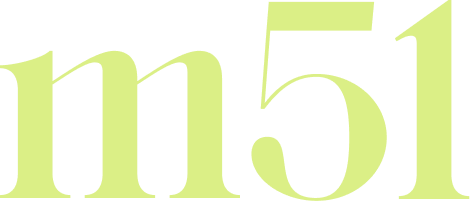How and When to Ask Your Employer to Sponsor Your Professional Development
Continuous learning and professional development are key to staying relevant and advancing your career, but investing in your growth while balancing work needs and life demands can make it challenging to prioritize. And when costs are associated with the course? That often pushes professional development even further back.
But let’s say you found the perfect training course: it’s challenging, applicable to your current or aspirational role, and the timing seems manageable. What steps can you take to enroll?
Something to consider is that many employers recognize the value of investing in their employees' growth. Before you pass on a course or try to arrange ways to make it work out of pocket, it’s worth exploring if your company can financially assist you.
Knowing how and when to ask for sponsorship can be daunting, but you’ll be happy you asked—especially if there are available funds. Here’s a guide to help you navigate this process and hopefully arrive at a “yes.”
We’ve put together a sponsorship request template that you can use specifically for the Financial Feminism Investing Lab.
Download Here
Why Professional Development Matters
Not only does professional development enhance your own skills and knowledge, but it also brings several benefits to your organization. Improved productivity, increased employee satisfaction, and staying ahead of industry trends are just a few advantages. By investing in your growth, your employer can reap significant returns such as:
Organizations that have made a strategic investment in employee development report 11% greater profitability. (Source: Gallup)
74% of employees say that a lack of professional development opportunities are preventing them from reaching their full potential. (Source: Harvard DCE)
94% of employees would stay longer at a company if it invested in staff development. (Source: ClearCompany)
48% of employees consider training opportunities a factor in choosing where to work. (Source: SHRM)
Organizations that invest in their team members’ development enjoy 24% higher profit margins. (Source: Forbes)
When to Ask for Sponsorship
How do you know when it’s time to grow? Leaning into optimal windows of time and milestones can be helpful to getting the green light for your professional development. Consider some of these moments:
Performance Reviews: Leverage your performance review discussions to highlight your achievements and link them to potential future growth through professional development.
Project Success: After checking off and completing a major project, you have a concrete example of your value to the company, making it an excellent time to request support.
Budget Planning Period: Companies often allocate budgets for training and development during specific times of the year. Knowing your company’s budget cycle can help you plan your request strategically.
When Your Industry Gets Disrupted: If your industry is experiencing major changes due to new technologies, regulations, or market shifts, it’s paramount to stay ahead. Asking for professional development during such times demonstrates your proactive approach to adapting and contributing to the company’s success in a transforming landscape.
How to Prepare Your Case
Our template is a great resource to formally submit your sponsorship request, but to make the most persuasive case, here are key points to prepare before you sit down with your employer to discuss the opportunity:
Research the Program: Be well-informed about the professional development opportunity you’re interested in. Have all the program details prepared: duration, dates, times, and cost. If the course takes place during working hours, factor in the time it's happening and make sure you have a plan for when you’ll be in the session.
Showcase the Benefits: Clearly articulate how the training will benefit your personal growth and your role within the organization, focusing on skills and knowledge that can directly impact your performance and the company's success. Benefits like improved negotiation skills, boosting presentation confidence, and learning risk mitigation strategies are all things that could likely get your employer on board.
The MIT Sloan School of Management examined how a company’s one-year training in soft skills resulted in a 250% ROI within eight months of a professional development program ending.
Be Ready to Negotiate: Anticipate questions and concerns that your employer might have about your training request. Be open to discussing different forms of support. Your employer might not be able to cover all costs, but they might offer partial funding, paid time off to attend training, or other resources.
Presenting Your Request
Initiate the Conversation: Schedule a dedicated meeting with your manager to discuss your professional development, allowing for an uninterrupted discussion. Also take note of their communication and decision-making style: if you know your supervisor doesn’t typically make decisions quickly, don’t expect them to in this instance. Introduce the idea, then revisit it as necessary—sometimes it takes a few times to solidify the benefits.
Follow Up: Follow up after the initial meeting with a formal request and thank-you email summarizing the discussion and reiterating your enthusiasm for the opportunity, keeping the conversation fresh in your manager’s mind and demonstrating your commitment.
Asking your employer to support your professional development goals can be a pivotal step in your career, and we hope these tips and our sponsorship request template help you land the training you’re interested in taking. By choosing the right time, preparing a compelling case, and presenting your request confidently and professionally, your chances increase for receiving the support you need.
Remember: an investment in your development is an investment in the future success of both you and your organization.
Good luck getting that approval!
Request sponsorship from your company to join us in the next cohort of the Financial Feminism Investing Lab.

